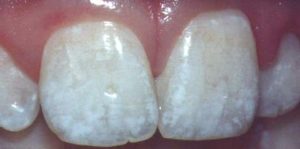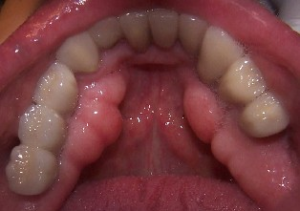What is Fluoride and What Does It Do?
Fluoride is a naturally occurring mineral found in a variety of foods you eat and in some water sources that you drink. Fluoride is also an essential mineral found in your teeth that helps make their enamel strong and protects them from decay and cavities.
In fact, our bodies take in fluoride in two ways: systemically and topically. Systemic fluorides like fluoridated water (from the tap) are swallowed. Topical fluoride can be applied directly to the teeth via toothpaste, mouth rinses and treatments at the dentist’s office.
Why are fluoride treatments recommended?
Cavities can cause pain and infections, which can lead to difficulty with eating and speaking, as well as causing serious health complications. It also helps repair weakened tooth enamel by replenishing lost calcium and phosphate — minerals naturally present in saliva. These minerals also make your teeth more resistant to future decay.
Do Fluoride Treatments Work?
While natural fluorides can be found in many foods like spinach, potatoes, grapes and raisins, fluoride treatments applied at the dentist’s office are much more effective because it is applied directly to teeth. The direct application allows tooth enamel to absorb it quicker and more efficiently.
What are fluoride treatments like?
These treatments do not take exceptionally long to complete. In fact, it may come in the form of a gel, foam, or varnish. There are a variety of ways it can be applied but the most common method is conducted by putting it in a tray that sits on your teeth for a few minutes.
Fluoride varnishes or gels on the other hand can be applied with a swab or brush. After receiving your treatment, you should allow at least a half hour before eating or drinking so that your teeth can fully absorb it and work on small areas that have been affected by decay.
How long does fluoride varnish last?
Once receiving the treatment, your teeth are protected for several months; however, your dentist may recommend revisiting fluoride treatments, along with a dental exam and cleaning, every six months to a year depending on your risk of decay. They may also suggest other preventative measures such as mouth rinses or gels.
Remember that a regular routine of good oral hygiene is your best defence again tooth decay, so keep on brushing!
If you are interested in learning more about fluoride treatments and the options available to you give us a call today to arrange a checkup. We make it easy.
Book an appointment by calling (905) 791-3867 or book online. You’ll be glad you did!
Yours in Excellent Oral Hygiene,
Dr. F. Keshavarz, Dentistry in Brampton.







